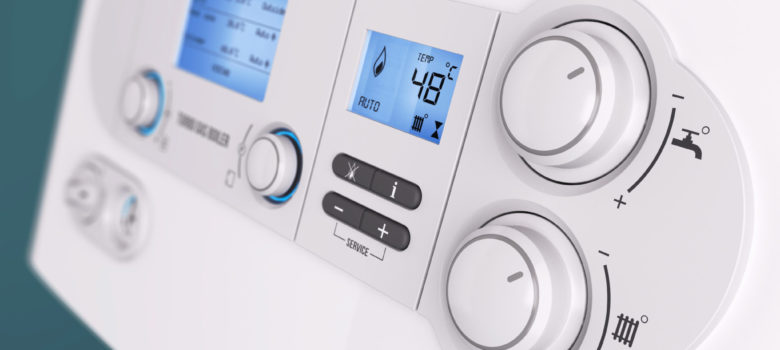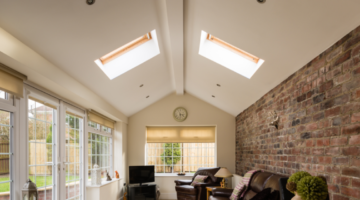
Why get an electric boiler?
Most electric heating system plug straight into your electricity supply and use internal heating elements to provide warmth. His can be an effective way to heat your home but doesn’t tackle water heating. Additionally, if you’re switching over from gas to electric then you probably already have a wet central heating system (one that runs hot water through radiators to heat your home). Therefore, instead of ripping these out and replacing them with electric heaters, a lot of people making the change decide to simply replace their current gas boiler with an electric one. This also stops them from having to invest in a separate hot water heating heater, as both the water and central heating runs through the same system.
How do electric boilers differ from gas ones?
The short answer to this is that they use different methods of heating water.
A gas boiler takes in gas from the national network supply and burns it to produce heat. This then goes through a heat exchanger, which heats the water used for both your central heating and hot water. With an electric boiler, it’s a similar process but instead of burning natural gas to create heat, an electric boiler heats the water using power directly from an electricity source (almost always the national grid).
This means that electric boilers are actually significantly more efficient than their gas counterparts. Modern gas boilers can reach as high as 95% efficiency (or even higher), but electric boilers can reach 100% efficiency.
What are the problems with electric boilers?
Electric boilers are not necessarily better for the environment. Electric heating options are often considered to be much more eco-friendly, since the heating is done using stored energy as opposed to gas. However, what a lot of people fail to understand, is how our electricity is generated. Not all of it comes from wind turbines and solar panels, a fair chunk is actually produced using exactly the same kind of dirty, fossil fuels that electric boilers are supposed to get us away from! Your electric boiler is, at least in part being powered by electricity generated by burning gas, is just that it’s being done in a powerplant as opposed to inside your boiler. What it comes down to is that our electricity is only as eco-friendly as the means we use to generate it.

Lower hot water production. If you’ve got a larger home then you may find that an electric boiler struggles to meet the higher hot water demand. It’s all about sizing up the right system – as a general rule try to allocate 1.5kW for every radiator in your house (so if you have 6 radiators, you’d be looking for an electric boiler with an output of 9kW or higher). That can add up to a lot of oomph, and you’ll struggle to find domestic system over 15kW.
Older wiring may struggle. If you have an older home in the UK, you may very well find that you’re working on a 30 or 60 amp fuse, both of which would struggle with an electric boiler (which generally operate at 48 amps). This is enough to blow a 30 amp fuse, or to render some of your other electricals inoperable with a 60 amp fuse. The only way to remedy this is to get a higher amp fitted. It’s therefore very important to consult with an electrician before fitting an electric boiler.












Isn’t this when you should mention Heat Pumps?
It’s ok for all to be forced to eventually all have electric cars heat pumps also use electricity funny how nobody mentions that same electricity may also not be green .
I think this is absolutely a fair comment. For me it is going to be interesting to see if the grid is flexible enough to accept a growing percentage of electricity coming from renewables like wind turbines etc as and when the reliable base load such as nuclear starts decreasing when the reactors reach the end of their useful lives.
Still looking for a heat storage solid core electric boiler to run on night rate octopus go. Tepeo not ready. Any alternative to tepeo to heat water radiators and hot water tank for baths. Simple electric substitute for present oil boiler about to go to heaven wanted. No intest in night storage radiators as cant rewire a grade 1 listed building. Heat exchange wont work either.